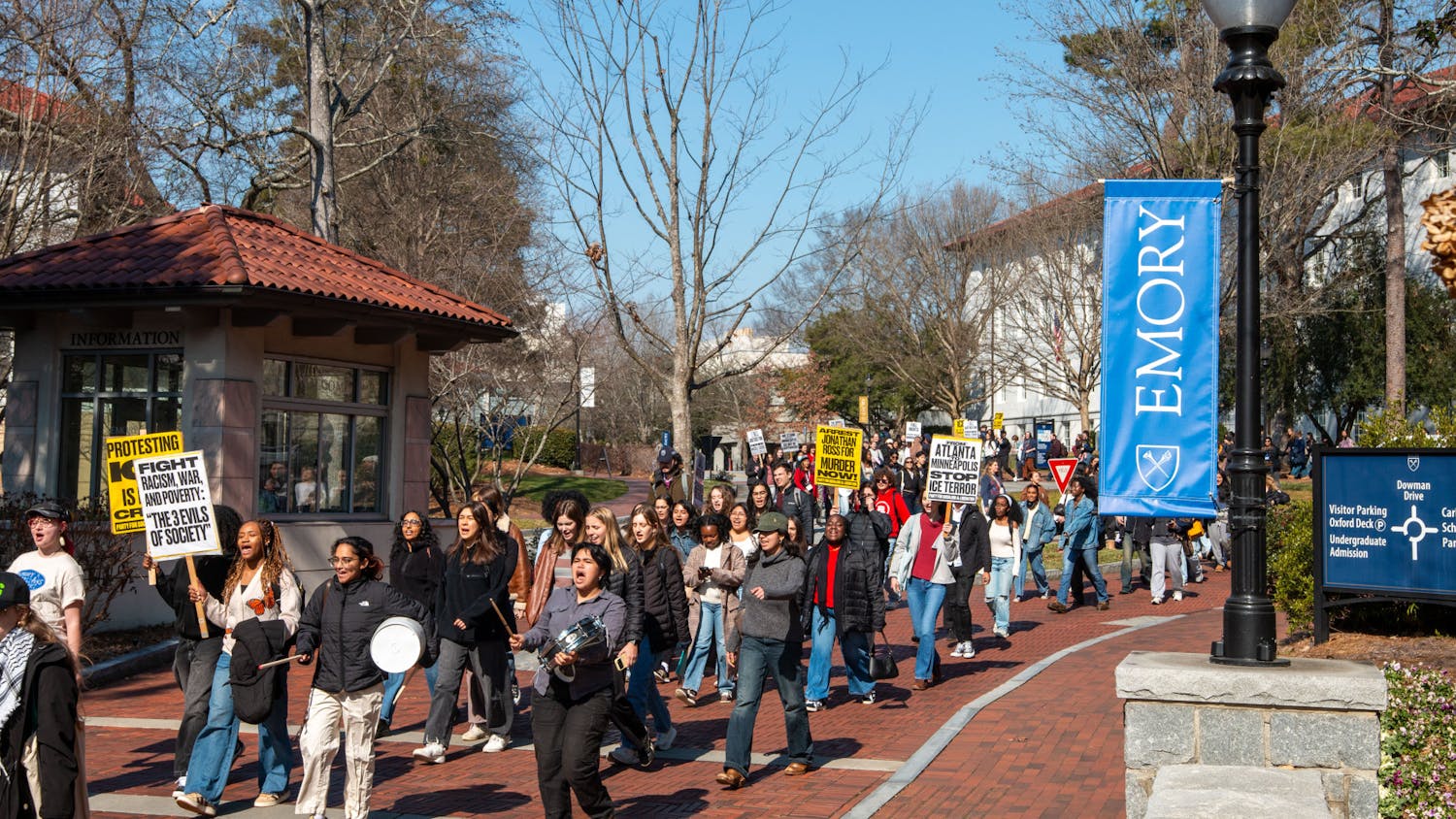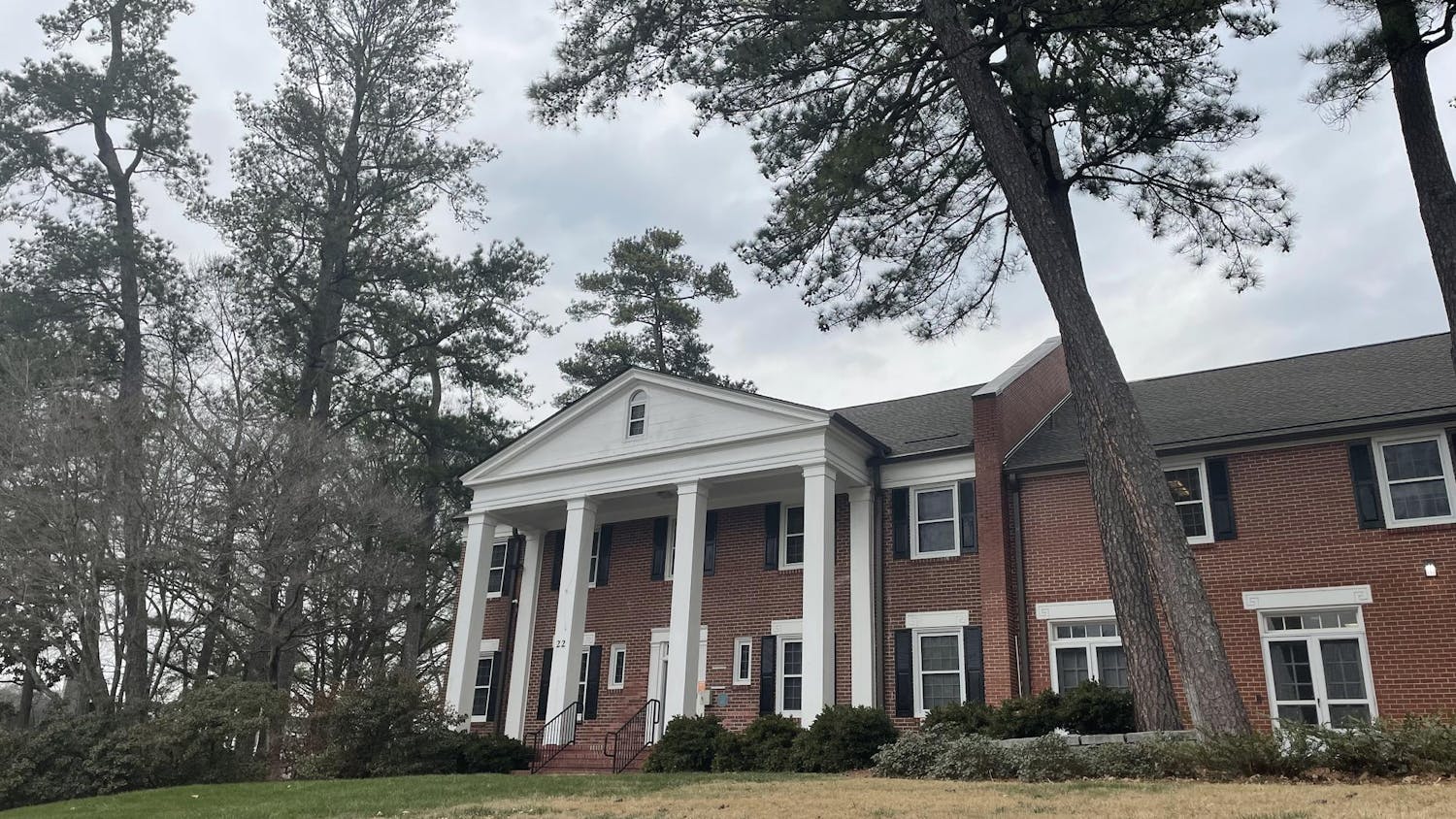Last summer, Emory Greek Life’s reckoning with its shameful legacy revealed a system too marred with systemic racism to continue operating. This Boardwrote that Greek life is rife with exclusionary practices, racist traditions and systemic issues. Despite pledges to diversify and cultivate a more equitable system, current and former sorority memberscastigated the half-hearted, lackluster attempts at change, lamenting that many came from the most marginalized members within sororities.
This past semester, recruitment participationdropped by 23% and many sorority members disaffiliated. Yet the system of Greek life remains a toxic, forbidding presence on campus, and without the University’s interference, we run the risk of retaining the status quo. Greek life as an institution opposes Emory’s purportedvalues of diversity, equity and inclusion. To remedy Emory Greek Life’s injustices, the University should abolish the Emory Panhellenic Council (EPC) and Interfraternity Council (IFC) and replace its social Greek system with a newresidential college model that emphasizes academic and social equity.
The toxicity of Greek life proved too much for some sororities, despiteclaiming that they were attempting to change. Even though the executive board promised to rectify past racial injustices in their sorority, several members of Pi Beta Phi (Pi Phi) dropped this past semester when they felt Pi Phi leadership failed to respond to their calls for change with substance. Jacqueline Hubbard (23C) chose to disaffiliate from the sorority before she even became an official member, feeling that its leaders had “misled [her] to think'' that while Greek life was “problematic sometimes,” her chapter was trying to mitigate the negative aspects of its social structure. “We had only been shown that picturesque narrative without … being shown that there was actually all this super awful stuff that happened that they’re choosing not to talk about,” Hubbard said, disheartened after learning about the chapter’s history of racism, especially within alumni and leadership.
However, Pi Phi was not the only sorority to come under increased scrutiny; some Alpha Delta Pi (ADPi) members also dropped due to a lack of reform within the sorority and political donations associated with the organization.
Formed in 2005, the Fraternity and Sorority Political Action Committee (FSPAC) exists to protect Greek life organizations' interests in Washington, D.C. The FSPAC has predominantly contributed to Republican candidates, including $10,000 each to former Georgia Senators David Perdue and Kelly Loeffler in 2020. While it does not receive donations from corporations or organizations except through its independent expenditure account (IEA), which cannot fund individual candidates, its donation records nevertheless indicate widespread cultural ills throughout Greek life.
No diversity board will neither solve the systemic issues of Emory Greek Life nor will it erase cultural ties to national organizations that uplift Republican candidates. Black, Indigenous and people of color shouldn’t have to change racist organizations. Racism, sexual assault and exclusion are so deeply embedded into Greek life that once the mirage of potential positivity wears away, it uncovers a system so intrinsically flawed that it must be removed.
Instead of fixing a system too broken to continue, Emory should abolish on-campus Greek life and use the resources set aside for it to create new social models for incoming students. Emory should create a new housing system to fill the gaps that abolishing Greek life would leave. The University should follow the British residentialmodel to replicate the social atmosphere and benefits of Greek life while guaranteeing protection against discrimination as has been a tenet of the Greek system.
Under the British model, residential colleges can assign first-year students according to their academic interests — where they can choose to remain each subsequent year of university. Key faculty members from each academic department live alongside students, much like house managers or directors in fraternities and sororities. Each college has its own form of intramural sports, faculty support and student government body. Such a system would allow students to enjoy the perks of Greek life — community, parties, events, alumni support and faculty mentors — without having to pay extra dues or go through the strenuous rush process, a cost that puts unduepressure on low-income students. Moreover, researchsuggests that students that live in residential colleges have stronger academic performance than those who live in other types of residential systems, measured by their inclination to inquire and their capacity for lifelong learning.
Although the residential college system originated in the United Kingdom, it is not uncommon in America. Rice University (Texas) opted toreplace all its Greek life organizations with residential colleges, in which every undergraduate student can form strong social bonds.
Revelations of sexual assault, misogyny and the use of racist and homophobic language in an internal documentused by Phi Psi at Swarthmore College (Penn.) led students to take action. Studentsprotested — including engaging in sit-ins and a hunger strike — to end Greek life on their campus. The University of Notre Dame (Ind.), which has historically not had a Greek life presence,uses residential halls as the center of campus social life. Their dorms have unique traditions and social atmospheres and create a positive social environment outside of the toxicity of Greek life.
Emory hasbegun initiatives similar to residential colleges with immersive themed halls on campus for first-year students such as the Black Men’s Initiative Immersion Community and the Sustainability Leadership Immersion Community. These first-year halls allow a smaller group of students to bond with others over shared interests. Emory should expand upon these programs and translate them into the British system so that all students can benefit from the increased support.
Given the important role organizations belonging to the National Pan-Hellenic Council (NPHC) and Multicultural Greek Council (MGC) play for students of color who have been ousted by other Greek life organizations, they should remain on campus. NPHC organizations, such asAlpha Kappa Alpha andPhi Beta Sigma, were founded by African American students in response to the systemic racism they encountered in fraternities and sororities. At predominantly white institutions like Emory, historically Black Greek-lettered organizations are safe havens for minority students that are routinely ostracized by Greek life and other majority-white organizations on campus. All multicultural fraternities and sororities should remain at Emory to ensure safety and inclusion for marginalized communities.
Regulation and reform haven’t been enough. Fraternities and sororities have spent their entire history — saturated withracism,sexual violence andclassism — intertwined with the University. The reckoning of summer 2020 was a long time coming but it is in danger of being ignored as time passes and a new cohort of students emerges. Something must be done now to prevent future generations of Emory students from experiencing sexual assault, discrimination and exclusion from Greek life members.
Greek life symbolizes segregation. Residential colleges signal inclusion. Revamping the current system would not only create a more inclusive community but would also help remake Emory as a University dedicated to the future well-being of students. Emory, don’t let Greek life hold you back. Abolish the system, revolutionize campus living and work toward integrating students with diverse identities.
The above editorial represents the majority opinion of the Wheel’s Editorial Board. The Editorial Board is composed of Sahar Al-Gazzali, Brammhi Balarajan, Viviana Barreto, Rachel Broun, Jake Busch, Sara Khan, Sophia Ling, Martin Shane Li, Demetrios Mammas, Meredith McKelvey, Sara Perez, Ben Thomas, Leah Woldai, Lynnea Zhang and Yun Zhu.
Correction (2/10/21 at 2:11 p.m.): A previous version of this article stated that a portion of sorority dues go to the Fraternity and Sorority Political Action Committee (FSPAC). In fact, a portion of all sorority dues go to their national organizations, which contribute to the FSPAC.
Correction (2/21/21 at 5:40 p.m.): A previous version of this article stated that a portion of all sororities' dues go to their respective national headquarters, which then donate to the Fraternity and Sorority Political Action Committee (FSPAC). In fact, the FSPAC does not receive donations from corporations or organizations except through its independent expenditure account (IEA), which cannot fund individual candidates.








